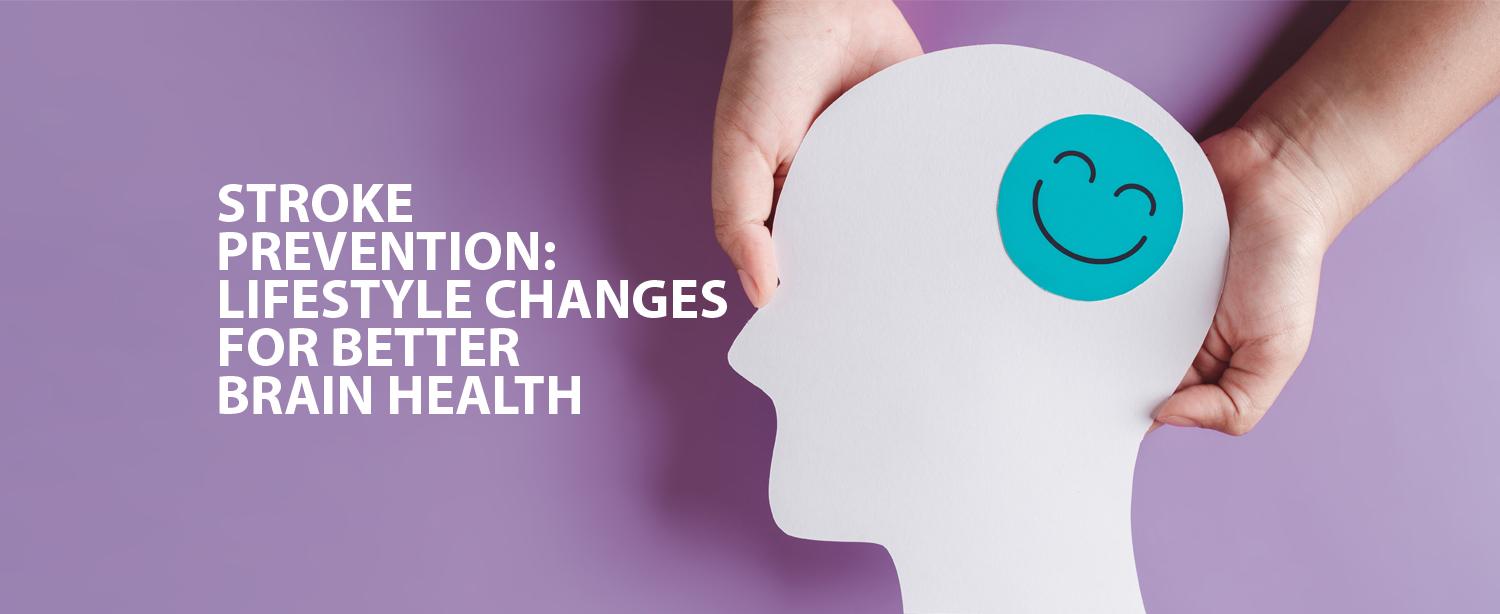Around 1,85,000 stroke cases are reported every year in India with nearly one stroke every 40 seconds. Stroke is the second most common cause of death in India, as per experts at the All India Institute Of Medical Sciences (AIIMS). Stroke, often referred to as a “brain attack,” occurs when there is a sudden interruption in the blood supply to the brain. This can happen when a blood vessel in the brain bursts (hemorrhagic stroke) or when a clot obstructs the blood flow (ischemic stroke). A stroke is a medical emergency that can happen when blood flow to the brain is blocked or when there is bleeding in the brain. This can cause brain damage, long-term disability or even death, so it’s crucial to seek immediate medical help. A healthy lifestyle is the key to help reduce the risk of stroke.
Lifestyle Changes for Stroke Prevention
By making conscious choices and adopting healthier lifestyle habits, you can significantly reduce your risk of experiencing a stroke. Recent studies suggest that nine in 10 strokes could be prevented by modifying 10 primary risk factors. These include:
- Maintain a Healthy Diet
Choosing the right types of food is essential for maintaining a healthy lifestyle. Diet plays a crucial role in maintaining cardiovascular health, which, in turn, is vital for reducing stroke risk. A diet rich in fruits, vegetables, whole grains, lean proteins, and healthy fats can help you control your weight, blood pressure, and cholesterol levels. Here are some dietary tips to consider:- Reduce Sodium Intake
- Embrace the Mediterranean Diet
- Increase Fibre
- Manage Weight
A person who is overweight and suffering from obesity has a high stroke risk. To understand whether the weight is in a healthy range you must know your body mass index (BMI). Maintaining a healthy weight through diet and regular exercise is crucial for stroke prevention. - Exercise Regularly
Physical activity not only helps with weight management but also improves overall cardiovascular health. Aim for at least 150 minutes of moderate-intensity aerobic exercise or 75 minutes of vigorous-intensity exercise every week. This can include brisk walking, swimming, cycling, or dancing. - Control Blood Pressure
One in three adults suffer from high blood pressure. High blood pressure is the leading cause of stroke. If yours is elevated, have it checked frequently and monitor it regularly. Lowering salt consumption, staying away from foods rich in cholesterol, increasing physical activity, and quitting smoking can all help lower high blood pressure. - Manage Diabetes
Diabetics have a 1.5-fold increased risk of stroke compared with those without the disease. Consult your physician to control your blood sugar levels. - Stop Smoking
Smoking is a major risk factor for stroke. All forms of tobacco can cause blockages in the artery leading to the brain. The harmful chemicals in tobacco damage blood vessels and increase the risk of blood clots. Quit smoking to improve your brain health and reduce your risk of stroke. - Say No to Alcohol
Excessive alcohol consumption can lead to high blood pressure and atrial fibrillation, a heart condition that can result in blood clots and stroke. Quit alcohol. - Stay Hydrated
Dehydration can increase the risk of blood clots and thickening of the blood, both of which can lead to stroke. Make sure you drink an adequate amount of water throughout the day to stay properly hydrated. - Get Sufficient Sleep
Quality sleep is essential for brain health. Lack of sleep can contribute to high blood pressure, obesity, and other stroke risk factors. - Manage Stress
Chronic stress can greatly impact your cardiovascular system negatively. Take up stress-relieving activities like yoga, meditation, deep breathing, or enjoyable hobbies. Managing stress effectively can help reduce your risk of stroke.
Stroke Treatment at Kokilaben Dhirubhai Ambani Hospital, Mumbai
Kokilaben Dhirubhai Ambani Hospital, Mumbai has established a comprehensive stroke care programme for the management of acute and chronic stroke patients. A dedicated stroke unit, neuro-imaging, emergency care, neuro-intervention, neurosurgical, and neurological intensive care unit services are all included in the Code Stroke Plan. Under the direction of highly skilled professionals, our team provides complete acute neurointervention services. Over 1500 successful brain operations for stroke have been performed by the Centre for Neurosciences. We are the only private hospital in Mumbai and in Western India to offer a comprehensive Level-1 Accident & Emergency Department (A&E) for patient care, training and research. Our Trauma Centre is reputed to respond the fastest in times of a stroke, which ensures higher recovery chances. If you or someone around you is having a stroke – reach out to our Centre for Accident & Emergency team on 022 42699999. Please find below our website details:
https://www.kokilabenhospital.com/departments/centresofexcellence/centrefor_accidentemergency.html


